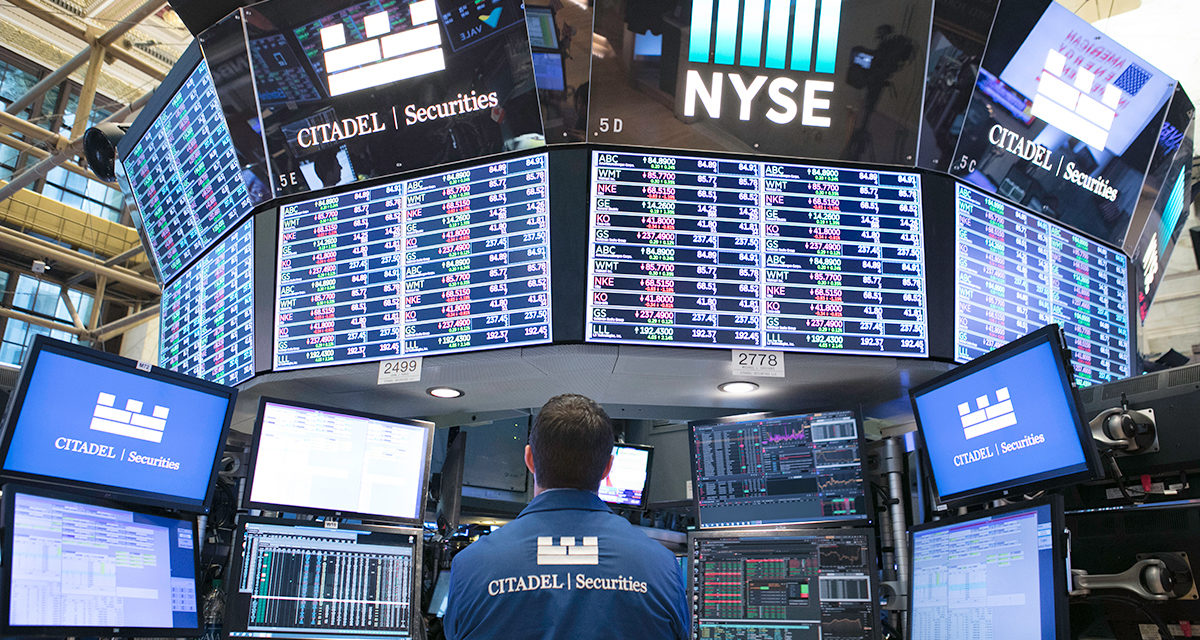As global equity markets continue to evolve and adapt to changing economic landscapes, a number of key trends are emerging that investors cannot afford to ignore. From the rise of ESG investing to the impact of new technologies on trading strategies, staying ahead of these trends is crucial for success in today’s fast-paced financial world. Join us as we explore the top trends shaping global equity markets and discover how you can leverage them to maximize your investment potential.
Introduction to Global Equity Markets
Global equity markets refer to the buying and selling of stocks, shares, and other securities issued by companies all over the world. These markets play a vital role in the global economy as they provide a platform for investors to allocate capital and businesses to raise funds for growth and expansion.
The concept of global equity markets can be traced back to hundreds of years ago when merchants would gather in coffeehouses in London or Amsterdam to buy and sell shares of trading companies. Today, these markets have evolved into complex systems that connect buyers and sellers from all corners of the globe through various exchanges such as the New York Stock Exchange (NYSE), Nasdaq, London Stock Exchange (LSE), Tokyo Stock Exchange (TSE), among others.
One key feature of global equity markets is their interconnectedness. This means that events occurring in one market can have ripple effects on others around the world. For instance, if there is a major economic crisis in one country, it can lead to a downturn in its local stock market which may also affect stock prices globally.
Another trend seen in global equity markets is increased diversity and inclusivity. With advancements in technology, it has become much easier for retail investors from different countries to participate in these markets alongside institutional investors. This has opened up opportunities for individuals with smaller budgets to invest internationally and diversify their portfolios.
Additionally, environmental, social, and governance (ESG) criteria have gained significant attention among global investors. Companies are now being held accountable not only for their financial performance but also for their impact on society and the environment. As a result, many investors are incorporating ESG factors into their investment decisions.
Current Economic Climate and its Impact on Equity Markets
The current economic climate has been volatile and unpredictable, with various factors such as the ongoing COVID-19 pandemic, political uncertainties, and global trade tensions contributing to its instability. This has resulted in a significant impact on equity markets around the world.
One of the key trends developing in global equity markets is the high level of uncertainty and risk aversion among investors. The sudden onset of the pandemic and subsequent lockdowns have led to a sharp decline in economic activity, causing businesses to suffer and leading to widespread job losses. This has created an atmosphere of caution among investors who are hesitant to take risks.
Additionally, the ongoing trade tensions between major economies such as the United States and China have further added to market volatility. The imposition of tariffs and retaliatory measures by these countries has disrupted global supply chains and hindered economic growth. This has also affected investor confidence as they try to navigate through uncertain trade policies that could potentially impact their investments.
Moreover, political instabilities in several countries have also played a significant role in shaping the current economic climate. Brexit negotiations continue to pose challenges for European markets, while civil unrest in certain parts of the world has heightened geopolitical risks. These factors have contributed to higher levels of uncertainty among investors and consequently impacted equity markets.
The effects of this uncertain economic climate can be seen across various asset classes, from stocks and bonds to commodities and currencies. Stock markets around the world experienced steep declines at the onset of the pandemic in March 2020 but have since shown signs of recovery due to government interventions such as monetary easing policies.
Technological Developments in the Stock Market
Technological developments have had a significant impact on the stock market, transforming the way it operates and how investors trade. With the rise of technology, trading has become faster, more efficient, and accessible to a larger audience. Here are some key technological developments that have changed the landscape of the stock market.
1. Electronic Trading Platforms:
The advent of electronic trading platforms has completely revolutionized the stock market. These computer-based systems allow investors to buy and sell securities on an automated platform without the need for physical presence in a traditional exchange floor. This has led to increased transparency, efficiency, and speed in trading execution.
2. High-Frequency Trading (HFT):
High-frequency trading is another significant development in recent years that uses complex algorithms and advanced computer programs to analyze vast amounts of data and execute trades at lightning-fast speeds. HFT has significantly reduced trade execution times from minutes to microseconds, allowing traders to capitalize on even the smallest price fluctuations.
3. Artificial Intelligence (AI) and Machine Learning:
AI and machine learning technologies have made their mark in financial markets by analyzing large amounts of data at lightning speed. These technologies utilize algorithms that can identify patterns and make predictions based on historical data, assisting traders in making smarter investment decisions.
4. Mobile Trading Applications:
The widespread use of smartphones has enabled investors to stay connected with global equity markets anytime and anywhere through mobile trading applications offered by brokerage firms or online trading platforms. This has increased convenience for traders while also providing them with real-time access to financial news updates, fundamental analysis reports, technical charts, etc.
5. Blockchain Technology:
Blockchain technology offers secure transactions by creating decentralized ledgers that record every transaction transparently. This technology could potentially reduce trade settlement time from days to minutes as all parties involved would have access to real-time information about a transaction’s progress.
6.FinTech Solutions:
FinTech companies continue to innovate solutions such as robo-advisors, which use AI algorithms to provide portfolio management and investment advice to investors. FinTech firms have also introduced peer-to-peer lending platforms, which allow individuals and businesses to lend or borrow money without going through traditional financial institutions.
Changing Investor Behavior and its Effect on Equity Markets
The global equity markets have always been influenced by various factors, including economic conditions, political events, and market sentiment. However, one factor that is often overlooked but has a significant impact on these markets is the behavior of investors. In recent years, we have seen a notable shift in investor behavior, which has led to major changes in the global equity markets.
One of the key trends developing in global equity markets is the rise of passive investing. This refers to an investment strategy where investors aim to replicate the performance of a market index or a specific sector rather than actively selecting individual stocks. The growth of passive investing can be attributed to its lower fees and ease of access through exchange-traded funds (ETFs). As more investors turn towards passive investing, it has led to an increase in demand for index-based products and put pressure on active managers to outperform these benchmarks.
Another trend that is changing investor behavior is the increased focus on environmental, social, and governance (ESG) factors. Investors are now placing greater importance on companies’ sustainable practices and their impact on society and the environment. This shift has led to an increase in ESG-focused investments, such as green bonds and socially responsible mutual funds. Companies with strong ESG credentials are also seeing higher valuations from these types of investors.
Furthermore, advancements in technology have also played a role in shaping investor behavior in global equity markets. With the rise of online trading platforms and robo-advisors, it has become easier for individuals to invest globally at lower costs than traditional brokerage firms would offer.
Emerging Markets: Opportunities and Challenges
Emerging markets have become a hot topic in the investment world as they offer unique opportunities for growth and diversification. These are countries that are rapidly developing and transitioning from low-income to middle or high-income economies, with fast-paced economic growth and increasing consumer demand.
One of the main advantages of investing in emerging markets is the potential for higher returns. As these countries continue to grow, their economies and stock markets expand, leading to increased profitability for companies. This can translate into higher returns for investors who have invested in these stocks.
Another key advantage of investing in emerging markets is diversification. By expanding your portfolio beyond developed markets such as US and Europe, you can spread your risk across different regions and industries. This helps to mitigate any losses that may occur due to market fluctuations or geopolitical events.
However, along with the opportunities, there are also challenges that come with investing in emerging markets. One major challenge is political instability. Many emerging market countries have unstable governments, which can lead to sudden changes in policies or regulations that could impact businesses negatively.
Another challenge is currency risk. Emerging market currencies tend to be more volatile compared to major currencies like the US dollar or Euro. Fluctuations in exchange rates can affect investment returns for foreign investors if not managed properly.
Infrastructure and logistics also present significant challenges in emerging markets. Poor infrastructure such as inadequate transportation systems can hinder business operations and limit potential growth opportunities.
Environmental, Social, and Governance (ESG) Investing in Equity Markets
Environmental, Social, and Governance (ESG) investing has been gaining momentum in recent years as investors have begun to realize the importance of sustainability and ethical practices in the companies they invest in. This type of investing takes into consideration not only financial factors but also environmental, social, and governance factors when making investment decisions.
Social factors take into consideration how a company manages its relationships with its stakeholders, including employees, customers, and local communities. This can include diversity and inclusion initiatives within the workplace or community involvement programs. By considering these factors when making investment decisions, investors can ensure that their money is going towards companies that prioritize ethical practices.













Someone essentially help to make seriously posts I would state. This is the very first time I frequented your website page and thus far? I surprised with the research you made to make this particular publish extraordinary. Great job!